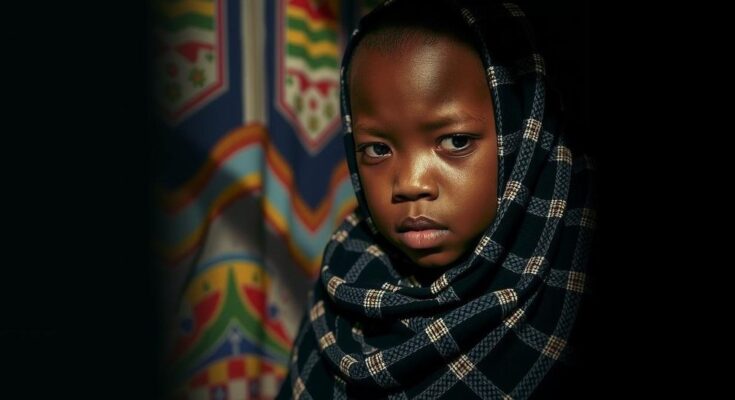The deaths of 23 children due to suspected food poisoning in Johannesburg have triggered xenophobic attacks on foreign-owned spaza shops in South Africa. Public outrage has led to violent incidents against shopkeepers, predominantly of Ethiopian, Indian, Pakistani, or Somali origin. Local groups like Operation Dudula have seized upon this unrest, replacing foreign shopkeepers with South Africans, while authorities have conducted raids resulting in multiple shop closures. The situation underscores the tensions between high unemployment rates and the economic roles of foreign nationals.
In recent months, South Africa has witnessed a series of tragic child poisoning cases, with 23 children in Johannesburg believed to have succumbed to food poisoning attributed to foreign-owned spaza shops. The incident has incited significant public outrage, leading to attacks on spaza shops, particularly those operated by foreign nationals. In Soweto, a specific spaza shop was implicated in the poisoning of six children, resulting in violence and the expulsion of the shopkeeper, an Ethiopian national. Although an autopsy indicated pesticide was the cause of death, no definitive link to the shop has been established. Authorities have responded by conducting inspections of foreign-operated spazas, resulting in the closure of several establishments due to alleged health code violations. The scenario has intensified xenophobic sentiments, exacerbated by high unemployment rates in South Africa, driving local communities to associate foreign nationals with job competition and health risks. Moreover, vigilante groups such as Operation Dudula have capitalized on this unrest, taking it upon themselves to drive out foreign operators from the local market. Their activities include ensuring that spazas are now run by South Africans, fueling further resentment and division within communities. The debate has ignited discussions about national identity, economic opportunity, and the implications of xenophobia on social cohesion in the region. Despite these challenges, many locals express reliance on spaza shops, indicating a complex relationship between community needs and broader societal tensions.
The incidents of child poisoning in South Africa have escalated into an issue of national concern, intertwining public health, xenophobia, and economic competition. The surge in xenophobia is notably directed towards foreign nationals operating spaza shops, which are small convenience stores prevalent in many communities. With a staggering unemployment rate of 32 percent in South Africa, local populations are increasingly viewing foreign nationals as contributors to their economic challenges. The increasing pressure from community-led groups against foreign-operated businesses complicates the already fraught social landscape, raising questions about public safety and the rights of foreign nationals in the marketplace.
In conclusion, the resurgence of xenophobic sentiments in South Africa illustrates the broader societal struggles entwined with public health crises and economic fears. The tragic cases of child food poisoning have sparked anger against foreign-owned spaza shops, revealing deep-rooted anxieties about competition and safety. The enforcement actions by authorities, combined with the rise of vigilante groups, underscore the urgent need for a balanced approach to address the complex interplay of health regulations, immigration policies, and community relations.
Original Source: www.jamaicaobserver.com




